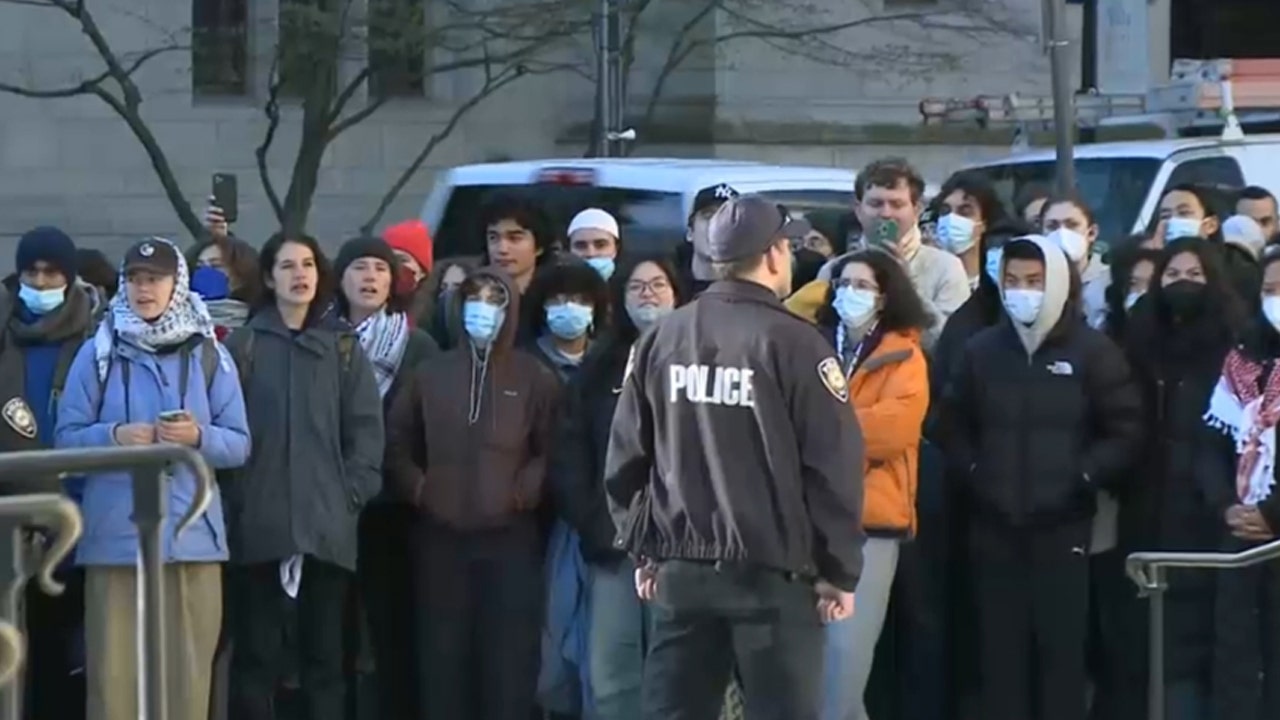Vice President Kamala Harris made a new effort to energize Black voters in battleground states on Monday, visiting Atlanta for the kickoff of a national economic tour that will highlight how the Biden administration’s policies are helping a constituency that will be vital to Democrats’ success in November.
Speaking to a largely Black crowd of about 150 people, Ms. Harris laid out ways that she and President Biden have sought to improve Black Americans’ upward mobility and help them realize their business ambitions. A chief objective of the tour, she said, was to let Black business owners and entrepreneurs know about the resources available to them.
“I need the help of the leaders who are here to get the word out so people know what is available to them,” she said during a conversation at the Georgia International Convention Center with Rashad Bilal and Troy Millings of the financial literacy podcast “Earn Your Leisure,” which offers business advice to its more than two million listeners, a majority of whom are Black.
Explaining how government policies have widened the racial wealth gap over the years, Ms. Harris pointed to the Biden administration’s attempts to try to narrow it, including small-business grants and efforts to forgive student loans.
“We want to make sure people know about it — and then know where they can receive — the support to be ready to take on the work and then to grow their capacity,” she said.
Her remarks at the official White House-hosted event — drier and less political than her forceful campaign speeches on abortion recently — meandered at times.
“As much as anything, the spirit behind the push for access to capital, and in particular, on this tour, focusing on minority small businesses and Black-owned small businesses, and small businesses and entrepreneurs who are Black men, is to recognize the disparities that have existed around the access to the opportunity to achieve success,” she said at one point.
But at other moments Ms. Harris was more pointed, including when she defended diversity, equity and inclusion initiatives that conservative lawmakers have pushed to dismantle in state governments and at colleges and universities.
“In spite of those who in certain parts of our country want to attack D.E.I., we understand that you can’t truly invest in the strength of our nation if you don’t pay attention to diversity, equity and inclusion,” she said.
The vice president’s Atlanta visit, her 12th trip to Georgia since taking office, was the first stop in a tour of several battleground states in the coming weeks. Much of the tour will focus on Black small businesses and economic issues that are especially pressing for Black communities. She will visit Detroit next week, aides said.
Ms. Harris’s tour will also seek to engage Black men, whom Democrats are urgently courting as polls show them softening in their support for Mr. Biden. Much of the crowd at the vice president’s event consisted of Black male political and business leaders, as well as a contingent of students from Morehouse College, a historically Black men’s college in Atlanta where President Biden will deliver the commencement address next month.
Before her speech, Ms. Harris visited an entrepreneurship hub near downtown Atlanta where she spoke with Black small-business owners.
Flanked by Georgia’s Democratic senators, Raphael Warnock and Jon Ossoff, as well as Representative Nikema Williams, the state Democratic Party chair, Ms. Harris highlighted the Biden administration’s marquee legislation, like the CHIPS and Science Act, which offers funding for small-business research projects.
She also underlined the roughly $7 billion that the administration has poured into historically Black colleges and universities, the largest investment of any White House administration.
Atlanta is set to receive more than $150 million for a project called The Stitch that is meant to revitalize the city’s downtown areas and connect them to its growing midtown neighborhoods. Georgia is one of 40 states that will receive money from a White House program that aims to repair the decades-old societal damage from federal transportation projects that disproportionately displaced Black communities.






